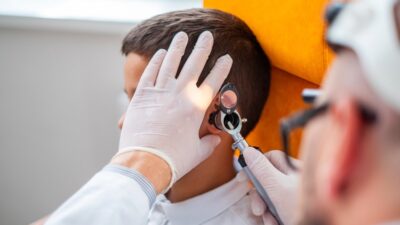The first week of September 2021 was an interesting one for cannabis advocates in Washington. While the Senate was entertaining the last few days of open comments on its proposed decriminalization legislation, the DEA quietly submitted a proposal to increase research quotas on a number of Schedule I and Schedule II substances. Marijuana and marijuana extracts were part of the proposal.
The DEA’s sudden interest in cannabis research is curious, at the very least. Various parties have been pushing for increased quotas for some time now. Why, after all these years, has the DEA position finally begun to shift? There has to be more to it than just a change of administrations.
Table of Contents
● Quotas Limit Legitimate Research
Imagine you are a medical cannabis patient living in Utah. Your preferred pharmacy is Pure Utah, located in the city of Payson. You do not visit Pure Utah with a traditional prescription similar to something a doctor would write for a bacterial infection. Rather, you take a state-issued medical cannabis card to the pharmacy and choose medications yourself.
Why do doctors not write medical cannabis prescriptions? There are two reasons:
- Cannabis is still illegal under federal law; and
- Limited research has made it impossible for manufacturers to create standardized medicines to treat specific conditions.
The long and short of it is that research into cannabis’ medical benefits has been limited since the 1970s. DEA quotas have only exacerbated the problem by preventing researchers from obtaining enough cannabis to do meaningful studies. Is that about to change?
● Cannabis and Psilocybin
The DEA’s proposal touches a long list of highly regulated substances ranging from marijuana to psilocybin. Marijuana is especially curious given that thirty-seven states now have medical cannabis laws on the books and eighteen of them recognize recreational consumption. Still, the answer to the question of why the sudden interest in cannabis may rest in psilocybin.
Psilocybin is a psychedelic compound naturally produced by more than two hundred types of fungi. Like the THC and CBD in marijuana, psilocybin is said to have identifiable medical benefits for treating a small number of conditions. Both Oregon and California look to be on the verge of legalizing the substance just as they did with marijuana years ago. That could explain the DEA’s move.
● Heading off Decriminalization
The cannabis movement in this country has been spearheaded largely by ballot propositions that have forced state lawmakers to develop cannabis programs in defiance of federal law. So many states now legally recognize medical and recreational cannabis that trying to enforce federal laws against it are a fool’s errand.
Perhaps the DEA is looking to increase marijuana and marijuana extract quotas as a way of heading off federal decriminalization before it becomes reality. There is a decriminalization bill working its way through the Senate right now, but there are no guarantees it will pass. If it doesn’t get through this year, increasing research quotas could give the DEA enough time to change the game before the bill comes up again.
Full decriminalization at the federal level would eliminate all federal restrictions on research. Depending on how the legislation was worded, states might still have the ability to implement their own restrictions. But we all know California, Colorado, Oregon, and a handful of other blue states would openly embrace research and the dollars that come with it.
After all this time, the DEA is asking to increase research quotas for marijuana and marijuana extracts. One possibility is that they are trying to stay ahead of full decriminalization. But who knows? Their motivation could be entirely different.










Comments